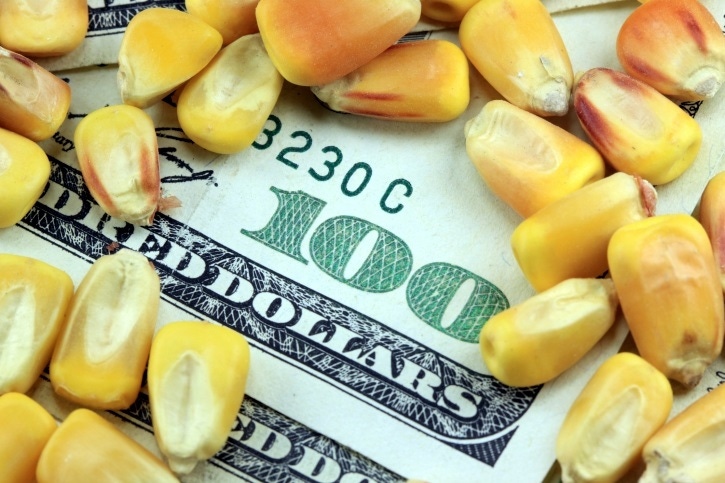USDA directed to quickly work on plan to mitigate impacts of trade war on agricultural producers.

President Donald Trump has instructed Secretary of Agriculture Sonny Perdue to work on a plan quickly that delivers help to U.S. farmers in the wake of the higher tariffs imposed on China. Perdue’s tweet comes on the heels of comments Vice President Mike Pence made in Minnesota on Thursday saying the Administration is prepared to offer farmers additional help.
In Japan for ag discussions with our 4th largest ag customer. Just spoke with @POTUS — while China may backtrack, @POTUS is steadfast in his support for U.S. farmers and directed @USDA to work on a plan quickly. @POTUS loves his farmers and will not let them down! https://t.co/B0le1WSwde
— Sec. Sonny Perdue (@SecretarySonny) May 10, 2019
“If we have to expand tariffs to reset the balance in our relationship, you can be very confident that President Trump and I and our entire Administration are going to look for ways to provide additional support to American farmers that would be impacted by the negotiations or uncertainty in our relationship with China, and those discussions have already taken place. ... We have already had preliminary discussions in the White House for additional support for farmers if this impasse with China continues,†Pence said while visiting a farm in Glyndon, Minn.
National Pork Producers Council (NPPC) president David Herring, a pork producer from Lillington, N.C., welcomed the news that an additional round of aid could be available.
“While there is no substitute for resolving these trade disputes and getting back to normal trade, NPPC welcomes the offer of assistance from President Trump. We stand ready to work with the [U.S. Department of Agriculture] to facilitate U.S. pork exports as food aid to a number of nations. This assistance should not cannibalize commercial trade; rather, it should help people in need who otherwise would not have access to this high-quality U.S. protein,†he said.
"Pork producers have been innocent bystanders in these trade disputes. Unlike most of the population, they have suffered severe economic dislocations as a result of trade disputes. It is fair and right that the U.S. government purchase significant quantities of pork over the next 18 months to ship as food aid to help ease the financial burden placed on producers," Herring continued.
Growers have been reeling for almost a year now after the President first imposed a 25% duty on $50 billion worth of Chinese goods in July 2018 and, later, a 10% duty on an additional $200 billion worth of Chinese products, which resulted in the retaliatory tariffs on U.S. goods. These are having a compounding impact not only on agriculture but all industries across the U.S.
House Agriculture Committee chairman Collin Peterson (D., Minn.) criticized the President’s handling of the trade situation, saying, “The Trump Administration’s decision to once again raise tariffs on Chinese goods does nothing but use our farmers as political pawns and further ourselves from a real solution. While I understand that the President believes he has good intentions on this, he’s doing it without understanding the impacts this has on farmers and our rural communities. Farmers don’t set the prices they receive, and every action causes a reaction in the market, leaving them subject to every word uttered or tweet sent. As the margins have tightened in rural America, we’ve heard those same farmers sound the alarm bells over and over again, and now they’re bracing for even more bad market news. With the upcoming negotiations set to take place, I hope that we can bring an end to this."
In a joint statement, the National Association of Wheat Growers, the American Soybean Assn. and the National Corn Growers Assn. (NCGA) all expressed disappointment in the tariff hike. The groups said they were expecting a deal by March 1 before farmers got back into the fields but instead saw an escalation of the trade war. The three commodities represent around 171 million of acres of farmland in the U.S.
“Corn farmers are watching commodity prices decline amid ongoing tariff threats, even while many can’t get to spring planting because of wet weather. Holding China accountable for objectionable behavior is an admirable goal, but the ripple effects are causing harm to farmers and rural communities. Farmers have been patient and willing to let negotiations play out, but with each passing day, patience is wearing thin. Agriculture needs certainty, not more tariffs,†NCGA president Lynn Chrisp said.
Editor's Note: Lon Tonneson, editor of sister publication Dakota Farmer, contributed to this report.
About the Author(s)
You May Also Like




.png?width=300&auto=webp&quality=80&disable=upscale)
